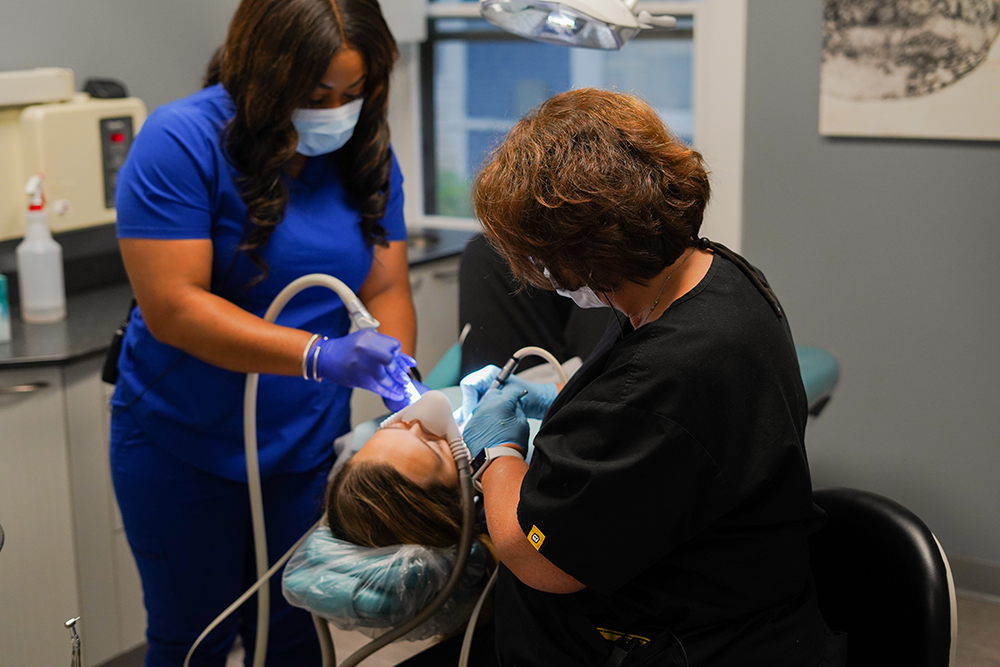A tooth filling is a dental procedure that is used to fill cavities, restore chipped or cracked teeth, and protect teeth from further decay. The cost of a tooth filling can vary depending on the type of material used, the size of the filling, and the complexity of the procedure. In this blog post, we’ll explore the different types of tooth fillings and the costs associated with each one.
What is a Tooth Filling?
A tooth filling is a restorative dental procedure used to repair minor to moderate damage caused by decay. This procedure helps to restore the structure, function and aesthetic of a damaged tooth. Dentists use composite material, such as amalgam or a tooth-colored resin, to fill cavities and seal cracks and chips. Tooth fillings are generally recommended if the damage caused by decay is too extensive for an alternative treatment like a dental sealant.
Common reasons for needing a tooth filling include tooth decay, chipped teeth, and wear and tear on the enamel of your teeth. Tooth decay occurs when bacteria in plaque produce acids that eat away at the enamel of your teeth. Chipping and wear and tear of the enamel can be caused by grinding, aging, injury, or even eating hard foods.
The Average Cost of a Tooth Filling
In the United States, the average cost of a tooth filling can vary depending on the type of material used and the size of the filling. Generally, metal fillings such as amalgam or gold cost more than composite fillings. The cost of a tooth filling also depends on the dentist’s expertise and fees. Generally, the price of a tooth filling can range from $50 to over $400. The exact cost for your particular filling will depend on your dental insurance coverage, the size and complexity of the filling, and the type of material used. Your dentist can provide you with an estimate of the cost before the procedure is performed.
Factors That Affect the Cost of a Tooth Filling
The price of tooth fillings can vary greatly depending on the type of filling you get, the material used, and the location where it is done. The cost can also be affected by the complexity of the procedure and your insurance coverage. Factors that can affect the cost of a tooth filling includes:
Type of Filling: Composite fillings are typically more expensive than silver amalgam fillings. Other types of fillings may also affect the cost, depending on what materials are used.
Material Used: The type of material used can have a big impact on the price of a tooth filling. The type of material used will also affect how long the filling will last, so be sure to ask your dentist about different materials available.
Location: Depending on where you live, the cost of a tooth filling can vary significantly. In some areas, it may be much more expensive to get a tooth filling than in other areas.
Complexity of Procedure: The complexity of the procedure and the amount of work required to complete it can play a role in the overall cost of a tooth filling.
Insurance Coverage: If you have dental insurance, it could help to reduce the price of a tooth filling. Make sure to check with your provider to see what coverage you have and if it applies to tooth fillings.
How Do I Know If I Need a Tooth Filling?
When it comes to your oral health, it’s important to stay informed and to be aware of any changes that may indicate the need for a tooth filling. Generally speaking, tooth decay can cause pain, tenderness, and sensitivity in your teeth, as well as discoloration and/or black spots. If you experience any of these symptoms, it’s important to consult your dentist right away so they can determine whether or not a filling is necessary. If left untreated, tooth decay can cause significant damage to your teeth and can even lead to further oral health issues. As such, it’s important to seek treatment as soon as possible to prevent further damage.
Ultimately, the only way to know for sure if you need a tooth filling is by visiting your dentist for a comprehensive oral exam. Your dentist will be able to provide you with an accurate diagnosis and recommend the best course of action for restoring your oral health.


Recent Comments